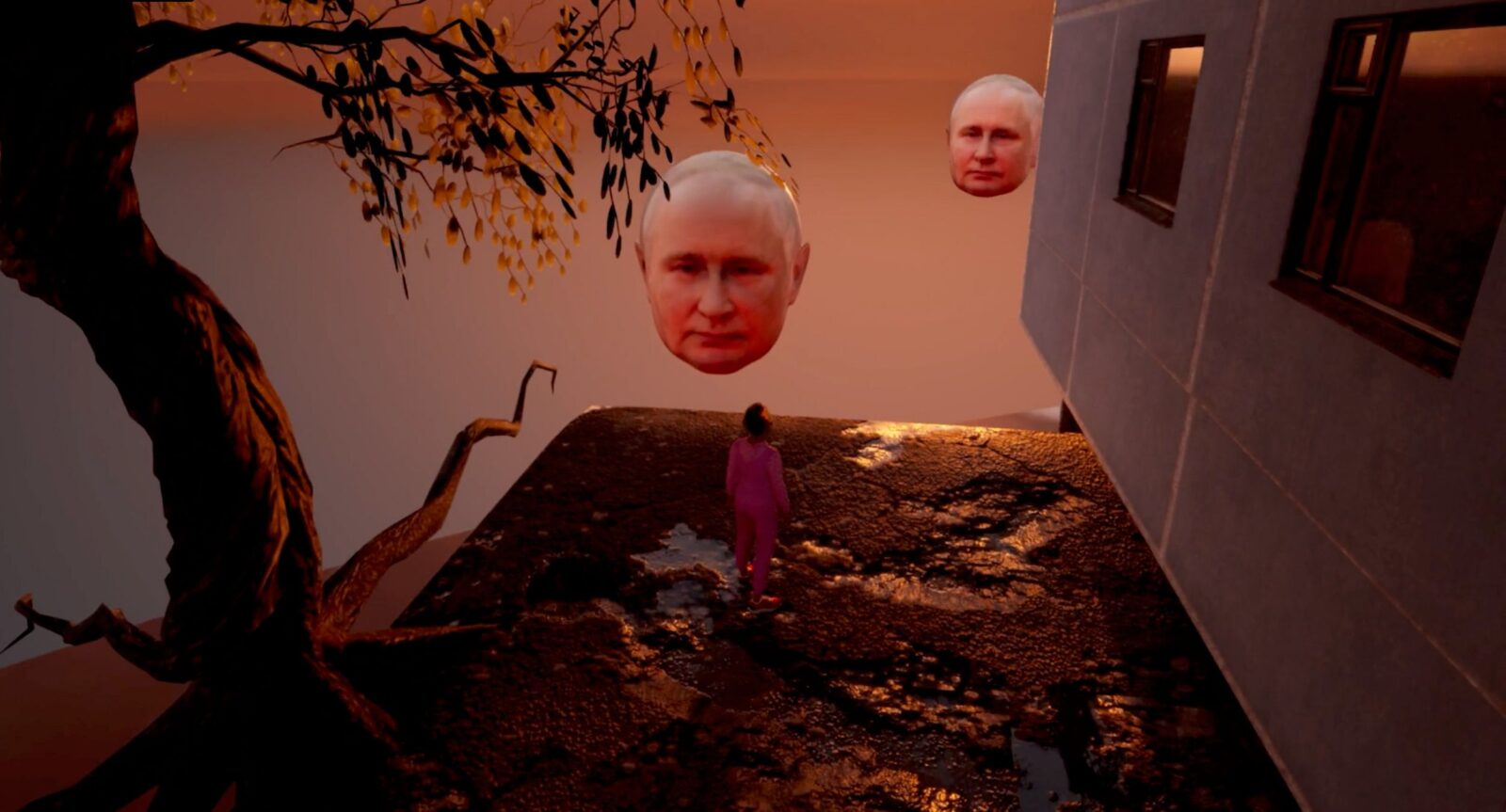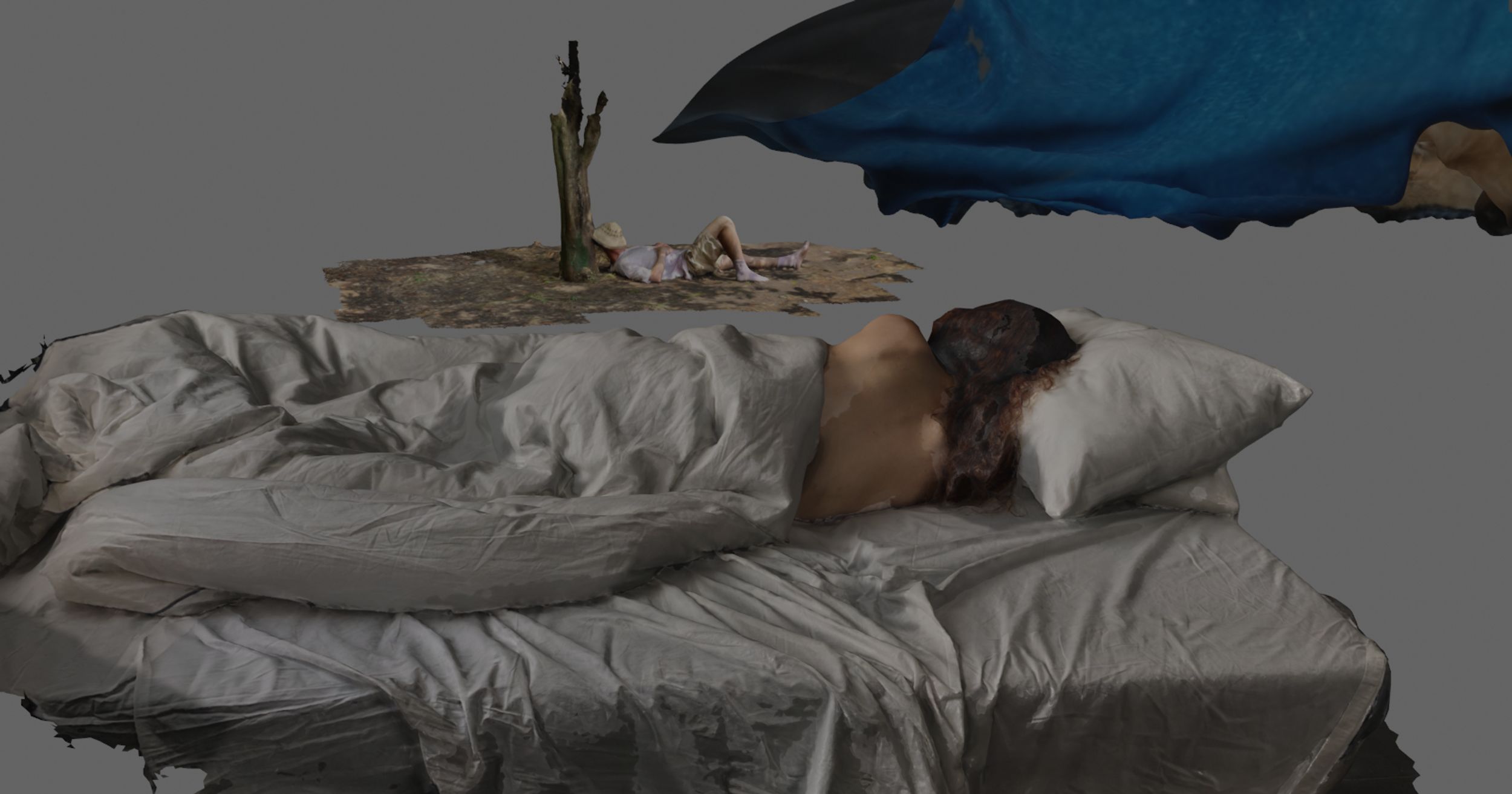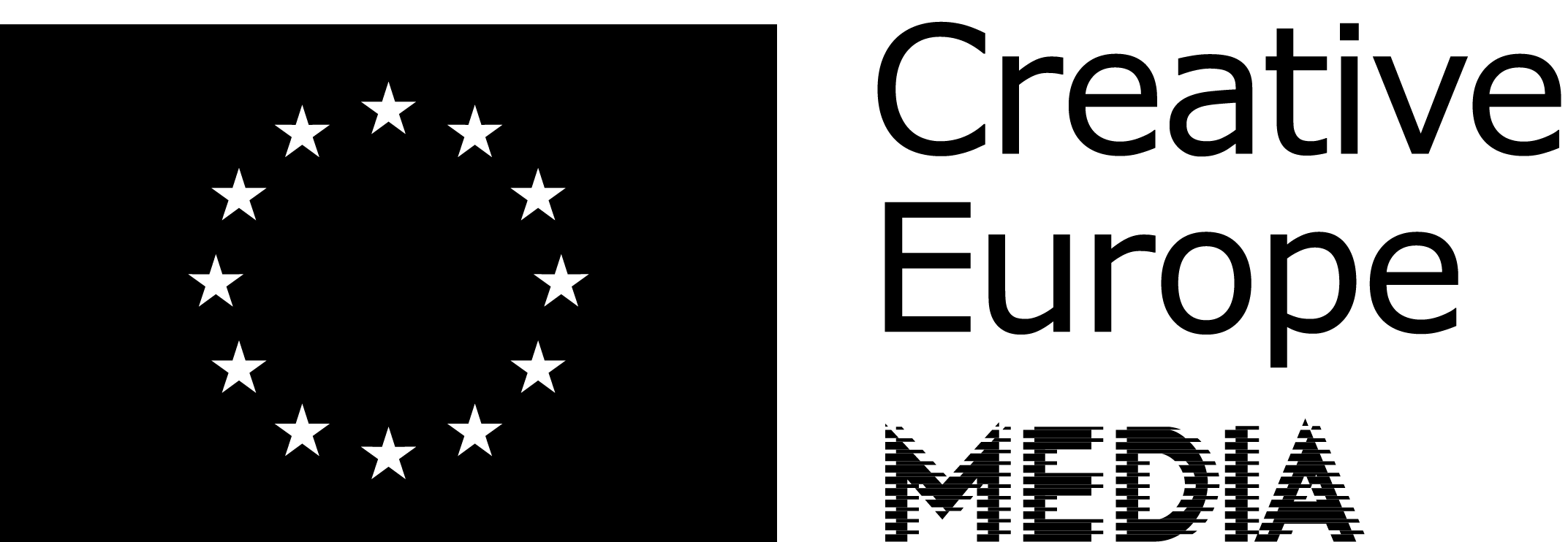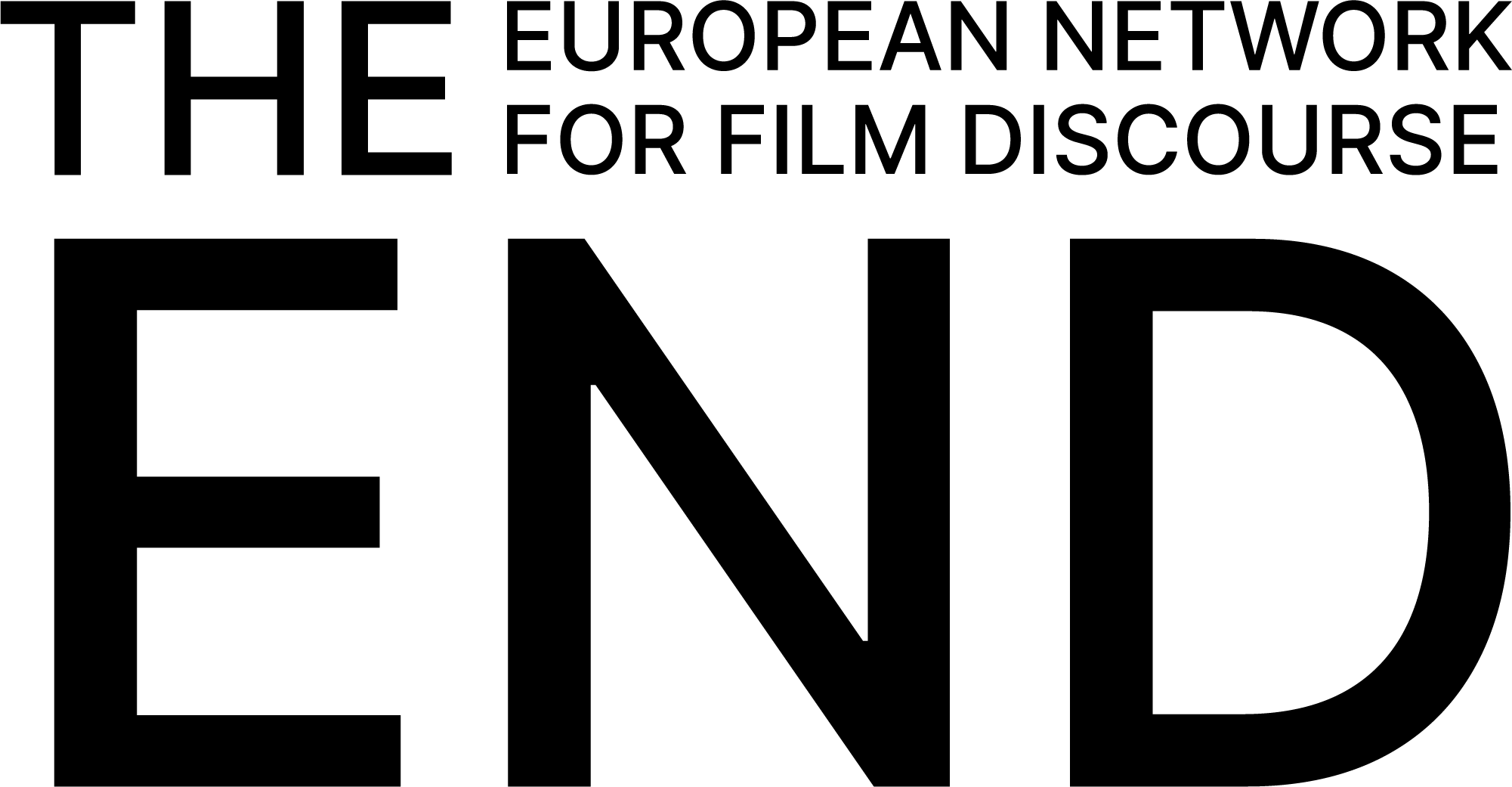Even At Night
Nastia Korkia on Dreams About Putin
In her overtly political graduation project, Nastia Korkia alternates propaganda footage of Putin with a surrealist 3D-world of Putin-related dreams.

It seems apt that I get to interview Nastia Korkia over Zoom. She greets me from a minimalist room in Zagreb, her smile blurred slightly by the distance the feed must travel to reach me in Vienna. Remoteness will be a constant element in our conversation about her documentary Dreams About Putin, a kaleidoscopic journey through the dreams of Russians set against footage of the man who haunts them.
Born in Moscow, Nastia fondly recalls a happy childhood in a progressive household and the freedom of big-city teenagehood. She reaches adulthood when Putin reaches power, and so I ask her what she remembers about the beginning of his rule. “I just remember very clearly that we never voted for Putin,” she says, “for my family, it was clear that something was going very wrong because Putin was part of the KGB.”
She leaves her hometown in 2021 to enroll in the Doc Nomads Masters Programme—a graduate school taught jointly in Lisbon, Brussels, and Budapest—and has not returned since. Back then, tensions between Russia and Ukraine were palpable, but she could not have predicted what would follow. “I never felt this coming,” she remembers. “Even one day before the invasion, I could not have imagined that Russia would send airplanes to attack Kyiv. It still gives me goosebumps.”
While Nastia is horrified by the war, she does not reject her nationality. Rather, she takes it on as a duty: “I feel guilty about the whole thing. But also feel that from now on, I cannot do films about anything else. Because right now, being Russian, I think it is our responsibility to at least speak out about what’s going on and what is important. I am fortunate enough that I am not in Russia, so I am not in danger of being put in jail.”
This sense of artistic purpose is a relatively recent discovery. I ask her to retrace the steps of her career and she seems surprised at how easy it is for her to connect the dots between what were, at the time, random decisions. After studying Spanish and working at an ad agency, she spontaneously applied for a directing position at the independent channel TV Rain—now blocked in Russia for spreading “deliberately false information.” In 2017, she attended a workshop with Werner Herzog where she recalls him telling participants: “No one will ever give you money. You are alone, and nobody will ever help you. Just go and do your own thing.” We laugh at her imitation of Herzog’s trademark cadence. “Strangely, it really helped because, inside, I was still waiting for some validation,” she adds, “but when you hear this, you understand that this is the right time.” She has not stopped following Herzog’s advice since, making several fiction and documentary films and increasingly focusing on political issues in Russia, even though she works from abroad.
Dreams About Putin is her graduation project and her second overtly political work after the 2021 fiction short Almost Spring. Through soft-spoken voice-overs, viewers enter the surrealist world of Putin-related visions, accompanied by loosely related 3D animation. Activist Daria Serenko collected the dreams after she noticed them being shared on social media. Similar occurrences of people dreaming about tyrants have been documented in times of political turmoil, like in Belarus after the 2020 election or during the Second World War.
Daria, who was placed on the list of “foreign agents” in 2023, categorises her collection into two types: nightmares about the current situation and dreams about gaining freedom and political agency. Though the first category seems traumatic, the second one is more devastating because it is so unattainable. Russian activists face torture, severe injuries, and charges of up to 15 years in prison for organising anti-war protests. Even small actions of dissent, like social media posts, have led to students being expelled and workers losing their jobs. Dreaming of cutting Putin open like a cake seems like the safest form of dissidence.

© Dreams About Putin (Nastia Korkia)
The film visualises this constant psychological pressure by alternating each dream with propaganda footage of Putin—to call it private or documentary would be a misuse of both terms. These state-issued vignettes show him in a variety of masculine activities: hiking in the Ural, spearfishing, and on a motorised hang-glider to help Siberian cranes migrate by disguising himself like one of the birds. Yes, really. The only clip of this grotesque display missing is a video of him diving into the Black Sea to miraculously find two ancient Greek vases.
They are usually broadcast by the TV network Russia Today, Putin’s main instrument of propaganda. Though their original intent is, presumably, to humanise him, the effect is quite the opposite: we are witness to a dictator given to bouts of giggling. The film uses this uncanny dichotomy, juxtaposing the superficially harmless Putin with the traumatised accounts of his subjects. Nastia explains the bizarre fascination: “The most absurd part is the reality of Putin. How he fishes, how he walks, how he swims. It feels more surreal than any dream.”
A feat given that Nastia and co-director Vlad Fishez worked hard to make the dream sequences as surreal as possible, notably by using the Unreal Engine, a software originally developed for video game design. “It feels like a very relevant type of animation because, in some ways, Russia is a game. We are all playing hide and seek,” Nastia explains. Indeed, each animated dream feels like that level of a videogame that features unknown parameters and blank-faced sleepwalkers. Another feature that fascinated Nastia was its distinct glitchiness: the camera permeates a figure’s skin, revealing simplified organs floating in nothingness. Russian citizens have nothing and nowhere to hide… The pleasure in creating these worlds is evident. Nastia talks of a dream in which a child runs through khrushchyovka apartment blocks (the Russian take on social housing) pursued by giant Putin heads: “We really liked playing this game. To be able to escape his head was like a therapy session for us.”
These dream sequences would keep a psychotherapist busy for days on end. One person dreams of being Putin’s wife, locked inside the Kremlin. Another imagines a world in which people who dislike Putin go bald, deducing that Putin must be the person who hates himself the most. Nastia and I reflect on the function of dreams: “In the darkest times, people dream about what is going on,” she says. “They can release their fears and hopes, but they cannot escape reality.” Suitably, the Putin dreams are not presented in a way that invites interpretation. The act of sharing seems more like helpless purging, without the hope of making sense of anything. A palpable resignation permeates both the texts and the voice actors’ performances.
This is certainly a consequence of the limitations the Russian government has imposed on the pursuit of knowledge. Since 2012, censorship of websites, television stations, and other media outlets has narrowed the information Russian citizens receive. Additionally, independent educational institutions are being closed, as well as departments in liberal arts, human rights, and English language courses at state universities. Systematically, the Russian government has been stripping its nation of the tools needed for reflection and critical thinking, creating a population that has lost the ability to understand itself. When I ask Nastia about these developments, she remarks: “War and totalitarianism still get to you, even if you switch off the TV. Even if a person prefers to live in a cloud, the reality of living in Russia gets to you. The dreams are the scariest thing. Even in the dreams, Putin is there.”
Nastia herself has never had a dream about Putin. “He has not penetrated my subconscious,” she tells me with relief. She ends the film, however, with her ultimate daydream: a documentary video of Putin in court, being prosecuted for acts of terrorism, an excerpt taken from a viral fake video in 2012. This final dream bridges the physical and metaphorical distance between Nastia and her fellow citizens.
Though they are unable to see the full documentary, Russians most certainly know this final video and the emotions it elicits. To those living outside of Russia, Dreams About Putin offers insight into the sleep-paralysis reality of a totalitarian state; to those living inside it, it offers solidarity.
This text was developed during the European Workshop for Film Criticism #4—a tandem workshop set during Filmfest Dresden and Vienna Shorts—and edited by tutor Anas Sareen.
The European Workshop for Film Criticism is a collaboration of the European Network for Film Discourse (The END) and Talking Shorts, with the support of the Creative Europe MEDIA programme.





